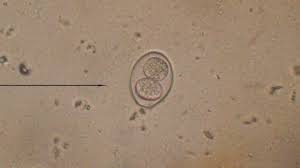Coccidiosis is a common parasitic disease that affects kittens, caused by a microscopic organism called coccidia. This disease can be particularly dangerous for young kittens with weaker immune systems. Understanding the symptoms, treatment, and prevention of coccidiosis is crucial for ensuring the health and well-being of your furry friends.
What is Coccidiosis?
Coccidiosis is a parasitic infection caused by coccidia, a type of single-celled organism that can multiply rapidly in the intestines of kittens. These parasites are commonly found in the environment and can be easily transmitted through contaminated food, water, or feces. Once inside the kitten’s body, coccidia can cause damage to the intestinal lining, leading to symptoms such as diarrhea, dehydration, and weight loss.
Symptoms of Coccidiosis
The symptoms of coccidiosis in kittens can vary depending on the severity of the infection. Common signs include diarrhea, which may contain blood or mucus, dehydration, lethargy, poor appetite, and weight loss. In severe cases, kittens may also experience vomiting, abdominal pain, and anemia. If you notice any of these symptoms in your kitten, it is important to seek veterinary care immediately.
Treatment for Coccidiosis
Treatment for coccidiosis in kittens typically involves medication to kill the coccidia parasites and alleviate symptoms. Your veterinarian may prescribe antibiotics or anti-parasitic drugs to help your kitten recover. It is important to follow your veterinarian’s instructions carefully and ensure that your kitten completes the full course of treatment to prevent a recurrence of the infection.
Prevention of Coccidiosis
Preventing coccidiosis in kittens involves maintaining a clean and hygienic environment for your furry friends. Make sure to regularly clean and disinfect your kitten’s litter box, food and water bowls, and bedding. Avoid feeding your kitten raw or undercooked meat, as these can be sources of coccidia parasites. Additionally, practice good hygiene by washing your hands thoroughly after handling your kitten or cleaning their living area.
Conclusion
Coccidiosis can be a serious threat to the health of kittens, but with proper understanding, treatment, and prevention measures, you can help keep your furry friends safe and healthy. By being vigilant and proactive in caring for your kitten, you can ensure that they live a long and happy life free from the dangers of coccidiosis.
Remember, early detection and treatment are key to preventing complications from coccidiosis in kittens. Stay informed and stay proactive in protecting your furry friends from this silent threat.

